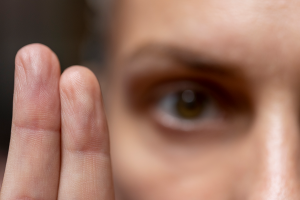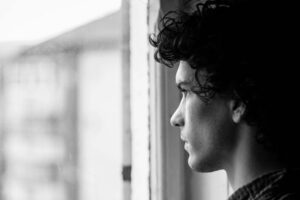Last updated: December 21, 2025
When most people think of Obsessive-Compulsive Disorder (OCD), they picture someone repeatedly washing their hands, checking locks, or organizing things in a particular order. These behaviors—called compulsions—are commonly associated with OCD. But what if someone experiences obsessive thoughts without engaging in visible behaviors?
Key Takeaways
- OCD can occur without visible compulsions; this form, often called “Pure O,” involves distressing intrusive thoughts and mental compulsions.
- Mental rituals—like rumination, silent counting, or mental reassurance—are common ways people cope with obsessive thoughts.
- Effective treatment, including CBT with Exposure and Response Prevention (ERP) and sometimes medication, can help even when compulsions are purely internal.
The Short Answer: Yes, You Can
Yes, it is entirely possible to have OCD without outward compulsions. This form of OCD is sometimes called “Pure O” (Pure Obsessional OCD). People with Pure O experience persistent, distressing intrusive thoughts (obsessions) but may not perform the typical physical rituals we often associate with OCD.
However, the term “Pure O” can be misleading. Even if the compulsions aren’t physical, individuals still engage in mental compulsions—covert actions like rumination, mental checking, or trying to “cancel out” thoughts.
Someone with OCD without visible compulsions might constantly replay thoughts or scenarios in their mind, mentally reassure themselves that they’re not a bad person, pray or count silently to prevent a feared outcome, or they may avoid people, places, or situations that trigger certain thoughts. These behaviors are all forms of mental compulsions—efforts to reduce the anxiety caused by obsessive thoughts.
Common Themes in OCD Without Obvious Compulsions
People with primarily obsessive OCD may have fears or intrusive thoughts related to:
- Harm (e.g., “What if I hurt someone?”)
- Morality or religion (scrupulosity)
- Sexual orientation or gender identity
- Relationships (e.g., doubts about a partner)
- Contamination or illness
They may feel intense guilt, fear, or confusion about their thoughts—even if they don’t act on them.
Why It Often Goes Undiagnosed
Since there are no visible rituals, this type of OCD can be harder to spot—even by the person experiencing it. They might not realize that their distress is part of a diagnosable and treatable condition. They may feel ashamed of their thoughts and try to hide them, further delaying help.
Understanding that you can have OCD without compulsions is key to getting the right diagnosis and support.
Treatment for OCD Without Physical Compulsions
The good news is that OCD, including Pure O, is treatable. The most effective approaches include:
- Cognitive Behavioral Therapy (CBT), especially Exposure and Response Prevention (ERP), which helps people face their fears without engaging in mental or physical rituals.
- Medication, such as SSRIs, may also be helpful for managing symptoms.
Working with a therapist who understands the subtleties of OCD—especially the internal forms—is essential for recovery.
Final Thoughts
Obsessive thoughts alone—when frequent, distressing, and disruptive—can be a form of OCD. Even if the compulsions are invisible or purely mental, they are very real and deserve attention. If you’re struggling with repetitive, unwanted thoughts and you’re not sure why, consider reaching out to a mental health professional. You don’t need visible rituals to have OCD—and you don’t need to suffer in silence. If you are interested in learning more about how therapy for OCD can help you, call us to schedule an appointment.







